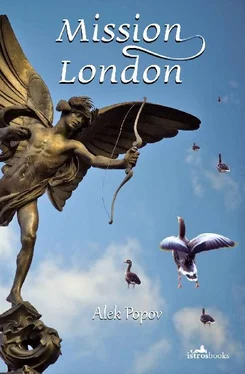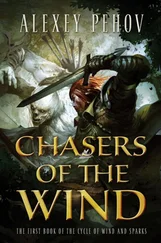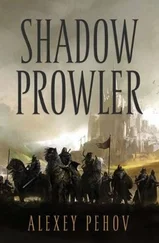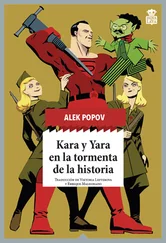Barry followed and they exchanged a few words.
“Where should we drop you?” he asked once he had got back in.
“Chelsea,” she replied shortly.
Katya flew back as the car accelerated. The seat seemed enormous to her. She spread out full-length on it, dropping the flute to the floor.
He turned around and passed the bag to her. “Come on, get dressed!”
“I failed, didn’t I?” she asked hoarsely.
Barry gave her an envelope. She opened it and counted the notes, still lying down — £500. Her stomach flipped over, as though the caviar had spawned thousands of little sturgeon.
“We’ll call you. Maybe at the beginning of next week.” His voice was devoid of feeling.
The car dropped her close to Chelsea Bridge. It was almost one. Katya was once again in her old clothes. Her hair had been messed up by the net and looked like the nest of a marsh-bird. Her thoughts were in a similar state. He was looking at her closely, as though debating whether she was in a fit state to get home alone.
“I’m not sure there will be a next time, Barry,” she said, surprisingly clearly.
“Did you find it hard, or was the money too little?” he seemed concerned.
“I don’t like it,” she shook her head.
“But you’re already a part of the game. Whether you like it or not.” He stated calmly, “You chose the role of a princess. You have to go through with it.”
“What if I say no?” she persisted.
“So you’ve decided to go back where you came from. Because sooner or later the Embassy will find out about your double-life.” He raised his eyebrows. “I don’t think they’ll be too ceremonious with you, Kate. That’s quite a conservative environment. You’ll be out on your ear.”
“You know quite a lot about me, huh,” she said.
“Just a preliminary investigation,” he threw it at her. “Welcome aboard.”
The little fish in her stomach swam about uneasily. I need the loo! she thought to herself. Barry stood looking after her over the top of the limousine.
Today was a big day.
The official entrance to the Embassy was wide open, and the marks of a thorough mopping were still drying on the stairs. The staff were milling about excitedly in the foyer, dressed in their Sunday-best; from time to time, one of them ran to the entrance, looked up the street and returned to the group disappointed.
“Are they coming?”
“No,” he replied. “Not yet.”
The carriage was scheduled to arrive at exactly eleven o’clock. There was still a long time before then, but the staff were impatient. An event of such magnitude rarely took place twice during one mandate and they wished to live it to the full — like a wedding, or a soldier’s send-off. Even their relatives had turned up, armed with cameras and camcorders to record this incomparable spectacle.
The ceremony of the Presentation of the Letters of Accreditation.
The last living witness to such an event had been returned home six months previously, however, the stories he had passed down had left indelible marks in the imagination of the remainder of the staff. For some time they lived in hope of being included in the delegation for the Presentation, until it became cruelly evident that there would be no delegation, and the Ambassador intended to go to the Palace alone. That had been a great blow to the diplomats. Is he as hamed of us, or something? they asked one another acrimoniously. The technical staff gloated. But, in spite of the contradictory feelings that tortured them, they were all animated today, even pleasantly thrilled. The insult had faded into the background. Now Varadin incarnated the National Ideal. He was ‘Our Man’. ‘Our Man’ was going to be received by the Queen with all due respect. A carriage would convey him both to and from the Palace. They would all see Our Man! That was the exciting thing.
The appearance of Varadin in tails, decorated with some shiny, obscure Order, brought sweetness to even the most sceptical soul. What a hero! How handsome! Their hearts swelled with pride. The omnipresent fear of the boss had evaporated. With hitherto unseen audacity, the staff, with their other-halves, crowded around him to have their photos taken as mementos, as if he were a tourist attraction, a wax-work in Madame Tussaud’s, or a Horse-Guard at his post. Varadin felt helpless in front of such festive euphoria — he could do nothing except shift his weight from one foot to the other, a silly smile on his face, attempting to keep his spirits up.
At exactly eleven o’clock, the cortège appeared at the top of the street and made its way towards the Embassy. It consisted of two carriages, covered and uncovered, pulled by massive, thoroughbred horses. It was escorted by police outriders. The Major-Domo, Stanoicho waited on the steps, in a pleasant dark-blue blazer, light trousers and a silvery, polka-dot tie that resembled a large, dead fish. A cigarette smouldered in his hand, and he was staring blankly at the passing cars. He seemed to be debating some difficult question, something along the lines of: How did I end up here? Why am I here? Am I actually here or not? The clatter of horseshoes brought him out of his nostalgic reverie. He caught a whiff of fresh manure. One of the horses snorted loudly; Stanoicho stared at the Royal Arms on the doors of the carriages.
In the open carriage sat the Marshal of the Queen’s Household, Sir Justin Glough, holding a baton, wearing a glaring white peaked cap, and full dress uniform. One of the footmen quickly jumped down and opened the door for him. The Marshal got out and looked around importantly. Very tall, built like a bear, with a round head and small playful eyes, he bore a striking resemblance to the late Benny Hill, whose former house was only a hundred yards or so from the Embassy.
Stanoicho stared at him, his eyes wide, like a Halloween pumpkin. He had no idea who Benny Hill was, in spite of the fact that he passed the memorial plaque on the side of his former home every day, but he was so overwhelmed by the appearance of the Royal Emissary that he totally forgot to announce his grandiose arrival. For his part, the Marshal stared at Stanoicho, no less impressed.
That, he told himself, must be the Bulgarian Marshal.
The cigarette burnt between Stanoicho’s fingers; he flinched and threw it over the parapet. The two Marshals shook hands.
“Dobur den,” said Stanoicho in pure Bulgarian, blushed to the roots of his hair, and invited the eminent guest in with a broad Slavic gesture.
Justin Glough bowed slightly. Throughout his long and loyal service, he had seen all sorts of ethnic rituals and nothing surprised him any more.
The first person to notice him was the cook’s wife. She gaped in surprise and pointed at him. Varadin instantly shook himself out of his stupor and hurried towards the Queen’s Emissary. The others rushed out to see the carriages. A considerable crowd had already gathered in the street outside — passers-by and tourists. The diplomats dutifully arranged themselves in a semi-circle, their faces suddenly enlivened by the sight of the second carriage. Maybe the boss had changed his mind at the last moment? Or maybe it was merely required by Royal Protocol? Who would be chosen?
This fleeting hope was nipped in the bud. The footman informed them that it was in reserve, in case it should suddenly rain. The diplomats were visibly disappointed. Bitterness returned to their hearts in all its poisonous strength. There was no longer any doubt that they had been cut out of the ceremony, like an unwanted and embarrassing appendix. Despite the fact that they were accustomed to all sorts of humiliations, this last insult seemed entirely beyond the pale. The most disappointed was the Defence Attaché, Colonel Vladimirov. Especially for the occasion, he had put on his brand new dress uniform with piping, which, in his opinion, was just as good as the Marshal’s. Could the Ambassador be ashamed of him too, an old veteran?
Читать дальше












